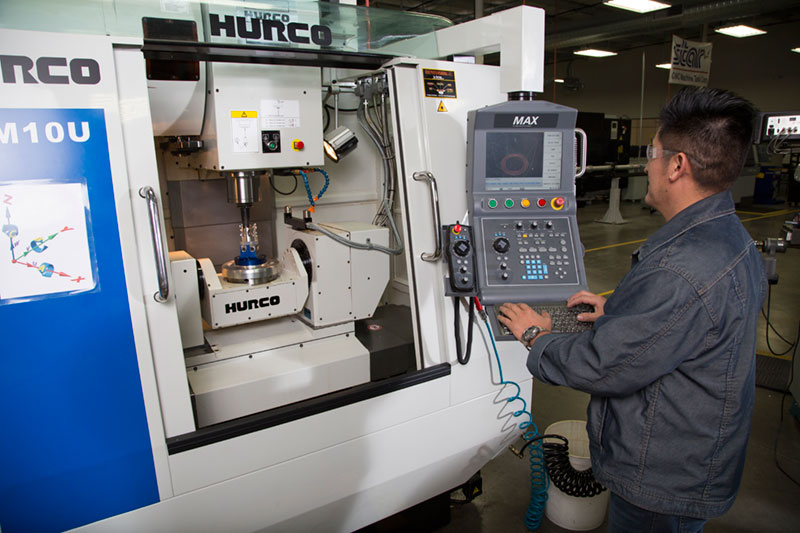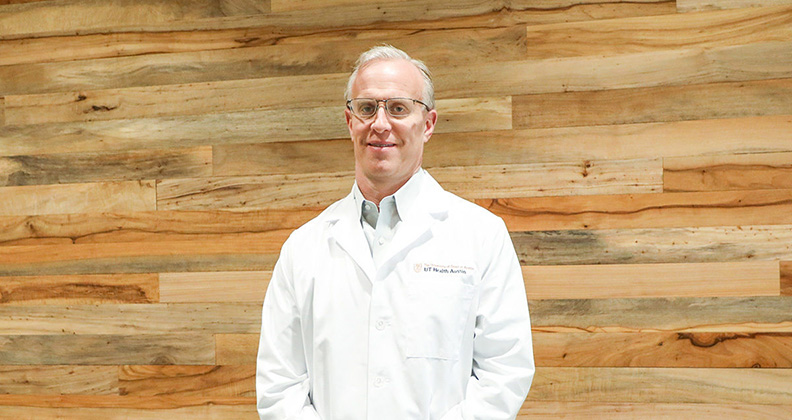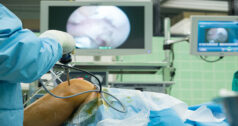
Any discussion of jobs in the orthopaedic industry has been heavily linked to challenges arising from the medical device tax. A look at the career pages of many companies suggests an additional aspect of the employment story: that industry is challenged to find and keep qualified, talented employees in certain segments due to skills gaps and an inability to replace the expertise of retiring veterans.
Here, we take a closer look at struggling areas and discover potential solutions for finding and maintaining skilled workers.
Shortages and skills gaps in the industry exist in the following areas:
• Manufacturing/machining, specifically CNC machinist
• Engineering
• Quality management
• Regulatory and clinical affairs
Shortages exist for a variety of reasons:
• Lack of collaboration among manufacturers and the local academic institutions/local government to properly define needed skills
and train future employees on those skills
• Lack of funding for academia
• Recruiting challenges
How can industry overcome these challenges?
First, industry and academic institutions must come together to outline the skills needed in the workforce, and then create programs to advance those skills. If technical programs, colleges and universities know what skills are lacking in the industry, they can help to increase the output of qualified orthopaedic professionals to fill technical positions.
This is taking shape in some communities that are home to heavy orthopaedic manufacturing.
OrthoWorx, a Warsaw-based non-profit organization, works with nine colleges and universities in Indiana to pinpoint and advance skills to support the orthopaedic industry. Recently, OrthoWorx announced a $475,000 commitment to fund a series of initiatives established to attract and retain students from colleges and universities throughout the state.
”The orthopedic industry and the northern Indiana region are in a worldwide competition for talent. Indiana colleges and universities produce excellent graduates, but many leave the state to build their careers,” says Sheryl Conley, OrthoWorx President and CEO. “We think more Indiana students need to know this career opportunity exists right here.”


Planned initiatives include:
1. Expansion of internship, co-op and project experiences; exploring faculty externships and other ways to
provide professors with a view into the industry.
2. Commissioning a skills gap study to identify unmet needs for education and talent/skills based on current
needs, impending retirements and upcoming industry changes.
3. Creating a value chain model that portrays the complexity of the industry and illustrates the academic
disciplines required for each stop in the value chain.
4. Building an online portal for students and faculty to connect their education with industry knowledge and
experience from OrthoWorx members.
5. Developing and launching initiatives for young professionals to strengthen their connections to the community.
6. Developing an initiative that promotes awareness among students and faculty on the community attributes
and career opportunities in northern Indiana with OrthoWorx industry members.
Prior to the creation of OrthoWorx in 2009, Ivy Tech Community College of Indiana had a difficult time gauging industry’s requirements. To address the need for more CNC machinists, OrthoWorx partnered with Ivy Tech to create the Orthopedic Quality Standards and Technical Skills Certificate. The certificate is offered at Ivy Tech’s Orthopedic and Advanced Manufacturing Training Center (OAMTC) in Warsaw.


“The Orthopedic Quality Standards and Technical Skills Certificate is a 22-week training program designed to take people with no experience and train them to set up and operate CNC machinery,” says Tom Till, Director of Advanced Manufacturing at Ivy Tech’s OAMTC. “In addition to learning how to operate machines, attendees receive 20 hours of LEAN manufacturing training—designed to improve process efficiency and quality, in addition to 20 hours of training in FDA Part 820 and ISO 13485.”
Since 2012, 80 students have earned the certificate. Of these 80 graduates, 46 came from the orthopaedic industry to become CNC machinists, according to Till. Currently, 20 students are enrolled in the program.
OrthoWorx and Grace College implemented certificate, bachelor’s and master’s programs in Regulatory/Clinical Affairs, taught by industry experts. This program is on its third cohort of students.
The two also launched the Medical Device Quality Management program, offering certificate, bachelor’s and master’s programs.
Shortages in the industry are not limited to one region. Recently, the Greater Memphis Medical Device Council (GMMDC) formed to address the similar problems.
Companies represented by the council’s charter members include Big River Engineering, Bioventus, MB Innovations, Medtronic, MicroPort Orthopedics, Onyx Medical, Restore Medical, Smith & Nephew, Surface Dynamics, Titan Medical, Wright Medical, Y&W Technologies and Zimmer Spine.
The GMMDC is also partnering with local high schools, technical schools, colleges and universities to address the lack of preparation in academic programs and tailor those programs to the high level focus required for work in the industry.
“There is a lack of adequately prepared engineers from most universities. Most engineers coming into the medical device arena have a sound knowledge of design theory, but lack an applied understanding of how designs can be manufactured economically,” says Stan McKee, Senior Engineering Manager at Medtronic and Secretary-Treasurer of GMMDC.
“Understanding of manufacturing applications, how tolerances and tolerance stacking affects manufacturing, and knowledge in manufacturing economics are traits rarely evident in bachelor level engineers.
“What needs to be done is that Federal and state legislatures, colleges, technical institutions, and medical device OEMs need to work together to define the needs. Otherwise, we are going to have institutions producing graduates with no place to go. The medical device community will continue to train from within and steal from each other, without a concentrated, tactical approach to resource development.”
Potential employees must have experience working with the advanced technology they will be operating, in order to succeed in the industry.
“The Federal government and states do not correctly fund colleges and technical institutes to provide equipment similar to that used in the medical device manufacturing facilities,” says McKee.
By building talent locally and internally, areas can overcome some of the challenge associated with recruiting skilled workers.
“Recruiting good, young talent can be a problem if the company is located outside of a major metropolitan area,” says Allyn Decker, Director of the Orthopaedic Regulatory and Clinical Affairs Graduate Program at Grace College in Warsaw, Indiana. “Companies are also relying on recruiting firms to fill contract positions, and many times this is a good place for our graduates to begin their orthopaedic career. Our community is also getting serious about improving quality of life, so that living in a smaller city doesn’t have to be a big sacrifice.”
Send comments on this article to Carolyn LaWell.
Photos courtesy of OrthoWorx and Ivy Tech.




